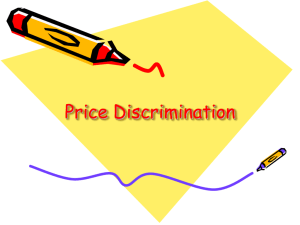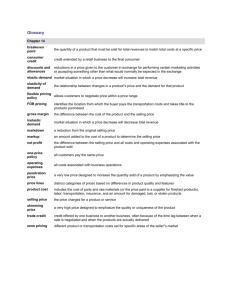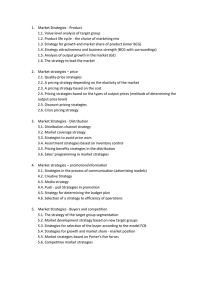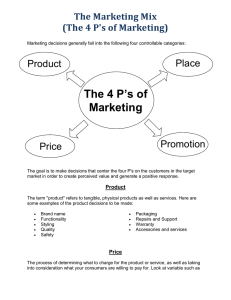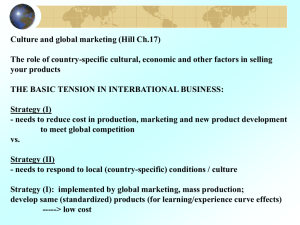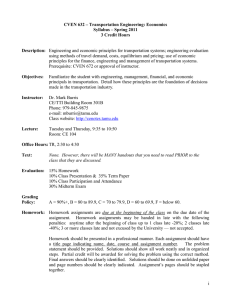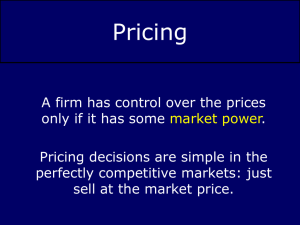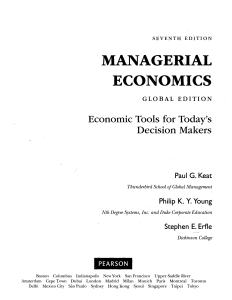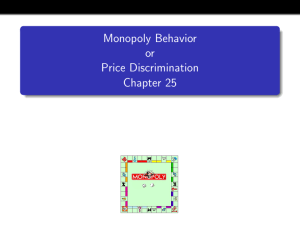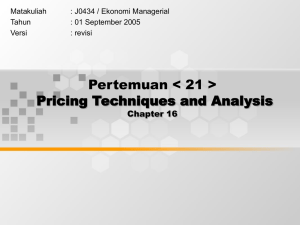PROBLEM SESSION #7- PRICING STRATEGIES Q.1 The following
advertisement
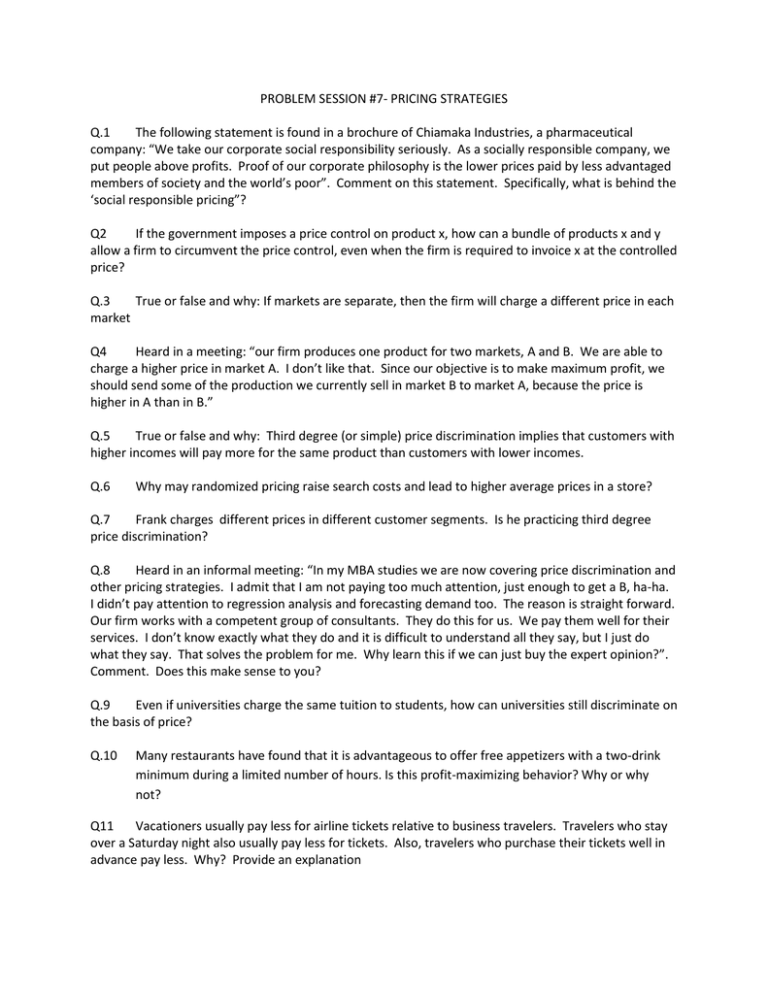
PROBLEM SESSION #7- PRICING STRATEGIES Q.1 The following statement is found in a brochure of Chiamaka Industries, a pharmaceutical company: “We take our corporate social responsibility seriously. As a socially responsible company, we put people above profits. Proof of our corporate philosophy is the lower prices paid by less advantaged members of society and the world’s poor”. Comment on this statement. Specifically, what is behind the ‘social responsible pricing”? Q2 If the government imposes a price control on product x, how can a bundle of products x and y allow a firm to circumvent the price control, even when the firm is required to invoice x at the controlled price? Q.3 True or false and why: If markets are separate, then the firm will charge a different price in each market Q4 Heard in a meeting: “our firm produces one product for two markets, A and B. We are able to charge a higher price in market A. I don’t like that. Since our objective is to make maximum profit, we should send some of the production we currently sell in market B to market A, because the price is higher in A than in B.” Q.5 True or false and why: Third degree (or simple) price discrimination implies that customers with higher incomes will pay more for the same product than customers with lower incomes. Q.6 Why may randomized pricing raise search costs and lead to higher average prices in a store? Q.7 Frank charges different prices in different customer segments. Is he practicing third degree price discrimination? Q.8 Heard in an informal meeting: “In my MBA studies we are now covering price discrimination and other pricing strategies. I admit that I am not paying too much attention, just enough to get a B, ha-ha. I didn’t pay attention to regression analysis and forecasting demand too. The reason is straight forward. Our firm works with a competent group of consultants. They do this for us. We pay them well for their services. I don’t know exactly what they do and it is difficult to understand all they say, but I just do what they say. That solves the problem for me. Why learn this if we can just buy the expert opinion?”. Comment. Does this make sense to you? Q.9 Even if universities charge the same tuition to students, how can universities still discriminate on the basis of price? Q.10 Many restaurants have found that it is advantageous to offer free appetizers with a two-drink minimum during a limited number of hours. Is this profit-maximizing behavior? Why or why not? Q11 Vacationers usually pay less for airline tickets relative to business travelers. Travelers who stay over a Saturday night also usually pay less for tickets. Also, travelers who purchase their tickets well in advance pay less. Why? Provide an explanation You are the manager of a pizzeria that produces at a marginal cost of $6 per pizza. The pizzeria is a local monopoly near campus (there are no restaurants or food stores within 500 miles). During the day, only students eat at your restaurant. In the evening, while students are studying, faculty members eat there. If students have an elasticity of demand for pizzas of -4 and the faculty has an elasticity of demand of -2, what should your pricing policy be to maximize profits? Q.12 Q.13 Firms that make game systems like Playstation and Nintendo typically charge a price close to average cost on the game system itself, and do not change that price even when the systems are scarce or demand increases. Why might this be a profit-maximizing strategy?


